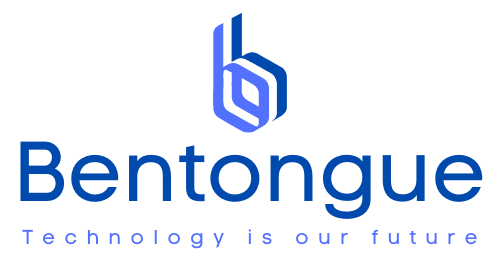Companies face increasing scrutiny from regulators across every sector, making a dedicated focus on compliance more critical than ever for business success. Managing regulatory expectations while running day-to-day operations has become a significant challenge for many organizations, prompting questions about when to bring in specialized compliance expertise.
Recognizing compliance needs for your organization
The decision to establish a formal compliance function often happens at a crucial growth phase when regulatory demands become too complex for existing staff to manage alongside their primary duties. Many businesses reach this inflection point but fail to recognize the signs until they face compliance issues.
Signs your business may require dedicated compliance oversight
Several indicators suggest your company needs a compliance officer. If you're unsure about your legal and regulatory obligations, handling sensitive personal data, or scaling rapidly into new markets, these are clear warning signals. Organizations operating in highly regulated sectors like finance, healthcare, or education almost always need specialized compliance expertise. Companies pursuing external investment or experiencing a regulatory near-miss should also consider this role. For comprehensive guidance on compliance officer requirements, visit https://consebro.com/ which offers detailed resources on compliance obligations across different sectors.
Assessing regulatory complexity in your industry sector
The regulatory landscape varies dramatically by industry. Companies in finance must navigate anti-money laundering regulations, while healthcare organizations face HIPAA requirements and data protection mandates. Manufacturing businesses often deal with environmental regulations, supply chain due diligence laws like the German LkSG, and modern slavery legislation. A dedicated compliance officer can monitor these complex regulatory frameworks, develop appropriate policies, and create risk management strategies tailored to your specific industry challenges. Their expertise becomes invaluable when dealing with cross-border regulations or when your business handles sensitive data subject to privacy laws.
Implementing an effective compliance function
The modern business landscape is increasingly complex, with regulatory requirements spanning multiple jurisdictions and industries. Organizations face growing pressure to maintain ethical operations while navigating regulatory frameworks. When properly structured, a compliance function serves as both a protective shield against legal risks and a strategic advantage for business growth.
Organizations often wonder when exactly they need to dedicate resources to formal compliance roles. Signs that your company may need a compliance officer include uncertainty about legal obligations, handling sensitive data, scaling operations, entering new markets, operating in regulated sectors, pursuing external funding, or experiencing compliance issues.
The decision to establish a compliance function should be proactive rather than reactive – waiting until after a regulatory violation can result in substantial penalties, reputational damage, and business disruption.
Defining the ideal compliance officer profile for your company
Finding the right compliance officer requires careful consideration of your organization's specific needs and risk profile. The ideal candidate combines technical expertise with business acumen and strong interpersonal skills.
Technical qualifications are essential. Look for candidates with relevant certifications such as ICA (International Compliance Association), CCEP (Certified Compliance & Ethics Professional), or CISI (Chartered Institute for Securities & Investment). A legal background can be particularly valuable, especially in heavily regulated industries like finance, healthcare, or energy.
Beyond credentials, effective compliance officers need exceptional communication skills to explain complex requirements in accessible language. They must demonstrate strong problem-solving abilities, adaptability to changing regulations, and the capacity to build trust across departments.
Salary expectations vary based on experience and industry. Entry-level compliance positions typically range from £30,000-£40,000, mid-tier roles from £50,000-£85,000, and senior compliance positions can command £100,000-£180,000+ in the UK market.
The ideal compliance officer functions as an investigator, technologist, philosopher, teacher, designer, counselor, and advisor. They must balance enforcement with education, helping the organization understand that compliance represents an opportunity rather than just a constraint.
Integrating compliance into your corporate structure
Successful compliance programs require strategic positioning within your organizational structure. The compliance function needs sufficient authority, independence, and resources to fulfill its mandate effectively.
Reporting structure is crucial. Many organizations position the compliance officer with direct access to the board or audit committee to maintain independence from operational pressures. This arrangement helps ensure compliance concerns receive proper attention at the highest levels.
Resource allocation should match your risk profile. Companies in highly regulated industries or handling sensitive data typically require more robust compliance teams than those in less regulated sectors.
Creating a comprehensive compliance program involves several key elements: regulatory monitoring, policy development, risk assessment, internal audits, staff training, investigations, and documentation. The compliance officer serves as the central point for these activities, creating reports that showcase the company's compliance health profile.
Technology increasingly plays a vital role in compliance management. Modern compliance platforms can automate monitoring, streamline reporting, and enhance due diligence processes for third-party relationships.
Beyond processes and systems, successful compliance integration requires cultivating a culture where ethical conduct is valued throughout the organization. The compliance officer must work to embed compliance considerations into daily operations rather than treating them as separate activities.
The right compliance structure not only reduces risk but also creates business value by streamlining policies, building stakeholder trust, and enabling confident expansion into new markets or business lines.







